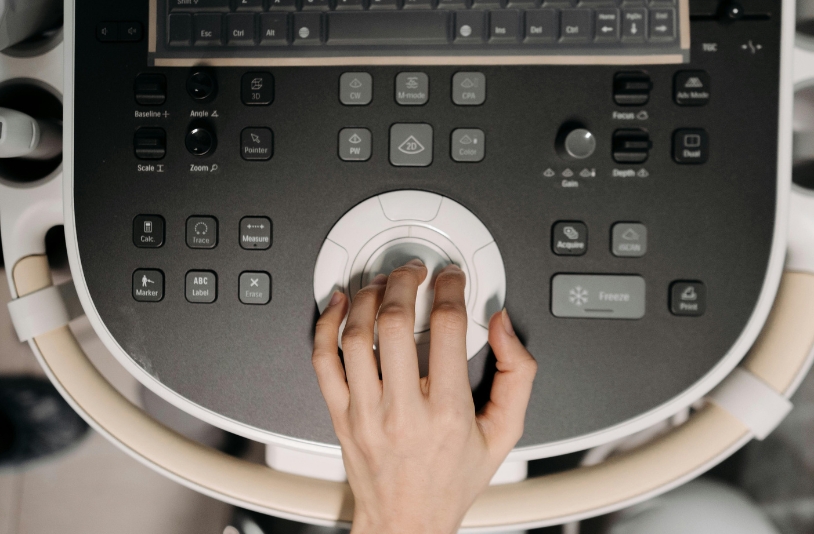Innovative Strategies in Healthcare Management

In today’s rapidly shifting healthcare landscape, effective management strategies are more crucial than ever. With technological advancements and the increasing complexity of patient care, understanding how to lead in healthcare management is vital. An MBA in healthcare management course like at Youngstown State University can provide essential skills and knowledge to navigate these changes and drive improvements in both patient outcomes and operational efficiency. However, beyond formal education, it’s critical to explore innovative strategies that redefine healthcare delivery in practice, incorporating creative solutions and adaptive approaches that meet the needs of a diverse patient population.
Adopting modern strategies in healthcare management enhances the patient experience and aligns with the growing demand for efficiency and cost-effectiveness in healthcare facilities. By embracing these strategies, healthcare leaders can meet current needs and anticipate future challenges with a forward-thinking approach. Utilizing technological innovations and data-driven decision-making are part of this new era, providing exciting opportunities for those ready to lead. These advances allow for a reactive and proactive system, addressing issues before they become systemic problems.
Key Takeaways:
- Explore the importance of embracing innovative strategies in healthcare management.
- Understand how technology is reshaping patient care and administrative processes.
- Discover actionable steps to enhance healthcare delivery and efficiency.
Table of Contents:
- Introduction
- The Role of Technology in Healthcare Management
- Embracing Patient-Centric Care
- Enhancing Operational Efficiency
- Data-Driven Decision Making
- Collaborative Approaches in Healthcare
- Overcoming Challenges in Healthcare Management
- Future Trends in Healthcare
The Role of Technology in Healthcare Management
Technology plays a transformative role in healthcare management today. From telemedicine to electronic health records, technology aids in enhancing patient care and streamlining operations. These innovations are pivotal in bridging gaps in healthcare accessibility, especially for remote or underserved populations. HealthIT.gov states these advancements support better care coordination, reduce errors, and lower healthcare costs. By effectively utilizing these tools, healthcare managers can ensure that their facilities respond to patient needs more swiftly and accurately and increase the overall standard of care across various platforms.
The integration of artificial intelligence in diagnostics and treatment plans has paved the way for personalized medicine, allowing for more tailored patient care that addresses individuals’ specific health needs. Such technological transformations also facilitate more secure and accessible patient data management, ensuring that crucial information is readily available when needed yet protected against unauthorized access.
Embracing Patient-Centric Care
The move towards patient-centric care redefines the patient-provider relationship by placing the individual at the center of healthcare decisions. This approach prioritizes understanding, empathy, and communication, focusing on patients’ needs and preferences to improve satisfaction and outcomes. Implementing systems that prioritize patient feedback and encourage active participation in care plans is essential for healthcare providers looking to build trust and rapport with their patients.
As healthcare becomes increasingly patient-centered, the emphasis shifts from treating ailments to promoting overall well-being. This holistic approach enables better healthcare delivery and encourages preventive care, reducing the likelihood of chronic illnesses and minimizing healthcare costs over time. Creating an environment where patients feel heard and valued ensures better treatment plan adherence and fosters empowerment and engagement in their health journeys.
Enhancing Operational Efficiency
Boosting operational efficiency is a primary objective in healthcare management, driving efforts to optimize resource utilization and improve patient flow within healthcare facilities. Facilities can significantly reduce costs and improve service delivery by developing streamlined processes and adopting automation and artificial intelligence. These technological solutions assist in minimizing administrative burdens, allowing healthcare professionals to devote more time to patient care.
For instance, automated appointment scheduling and digital documentation reduce time spent on manual tasks, preventing bottlenecks in service delivery and enhancing the overall patient experience. Efficiency improvements also extend to inventory management, ensuring that medical supplies and medications are adequately stocked and readily available when needed, safeguarding against delays in treatment.
Data-Driven Decision Making
Informed decision-making in healthcare relies heavily on robust data analysis. Utilizing comprehensive data sets, managers can discern patterns and predict outcomes, exponentially improving the quality of care. Access to large, reliable data sources enables healthcare managers to forecast patient trends, resource needs, and financial metrics, facilitating strategic planning and effective resource allocation. The CDC’s data and statistics offer valuable insights for improving service efficiency and patient care strategies, highlighting the centrality of big data in healthcare innovation.
This data-driven approach enhances operational efficiency and aids in identifying potential risks and areas for improvement within healthcare systems, enabling managers to implement mitigation strategies proactively. By leveraging business intelligence tools and analytics, healthcare leaders can make informed, evidence-based decisions that align with organizational goals and improve patient outcomes.
Collaborative Approaches in Healthcare
The complexities of modern healthcare require collaborative approaches involving multidisciplinary teams. Collaborative models enhance communication and coordination among healthcare providers, leading to more holistic patient care and improved outcomes. In practice, this means breaking down silos within healthcare organizations, promoting teamwork, and encouraging open communication across all levels of staff.
Emphasizing team-based care allows for diverse perspectives and expertise, addressing a wide range of patient needs more comprehensively. By fostering a collaborative culture, healthcare organizations can improve the quality of care, reduce duplication of efforts, and optimize resource allocation while enhancing job satisfaction and reducing burnout among staff.
Overcoming Challenges in Healthcare Management
Despite advancements, healthcare management faces persistent challenges, including resource constraints, regulatory pressures, and evolving patient demands. Developing strategic solutions to these issues is crucial for maintaining the quality and accessibility of care. Continuous professional development and adaptive management strategies enable leaders to navigate these complexities successfully.
Emerging technologies and innovative practices provide unique opportunities to address longstanding challenges, such as reducing healthcare disparities and improving service delivery. By prioritizing training initiatives and fostering a culture of continuous improvement, healthcare managers can empower their teams to deliver exemplary care, even in the face of adversity.
Future Trends in Healthcare
Healthcare management will continue to evolve with emerging trends, such as personalized medicine, genomics advancements, and the Internet of Medical Things (IoMT). Staying informed and adaptive will be key to capitalizing on these advancements, ensuring organizations can deliver cutting-edge care. The future of healthcare promises challenges and numerous opportunities for those ready to innovate and lead, ultimately reshaping the industry for the better.
By embracing these trends and integrating them into their strategies, healthcare leaders can revolutionize patient care, improve operational efficiency, and contribute to the overall improvement of healthcare systems worldwide. The ongoing advancement in healthcare offers an exciting prospect for those poised to leverage innovation, ensuring they remain at the forefront of change.
In conclusion, healthcare management in the modern era demands a strategic integration of technology, patient-centered practices, and collaborative efforts. Those equipped with the right knowledge and skills will lead the way in transforming the healthcare industry.
Photo: Pavel Danilyuk via Pexels
link







